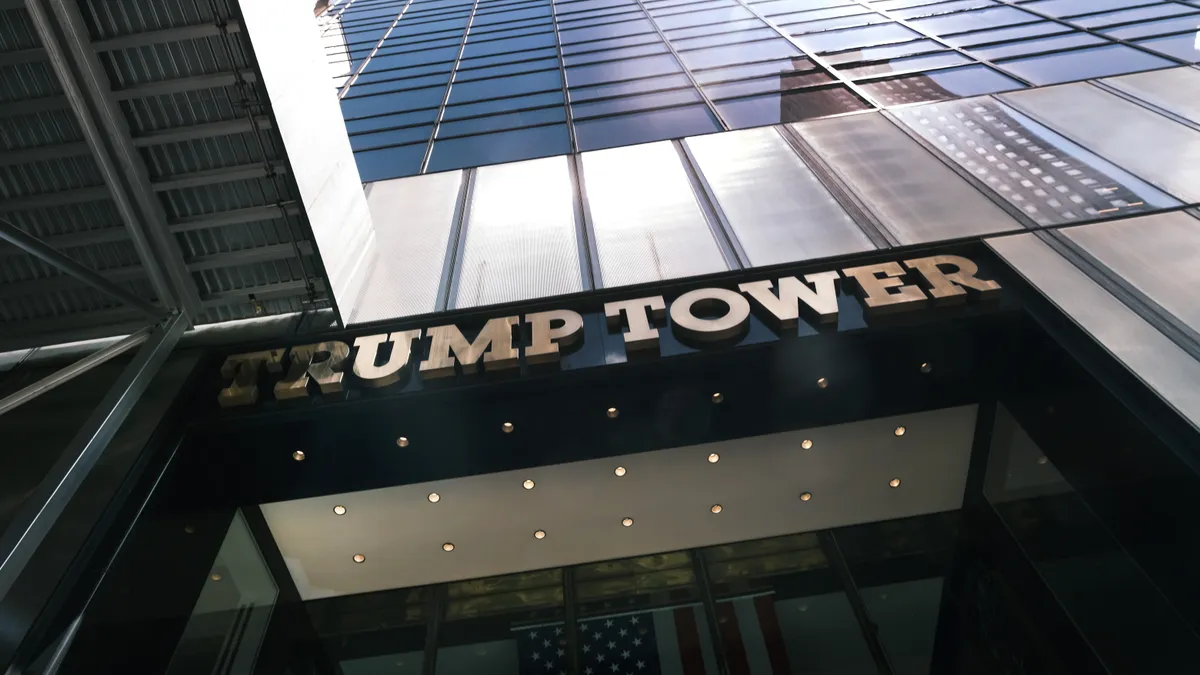The ruling by Judge Arthur Engoron of the New York Supreme Court on Tuesday denying the Trump Organization’s motion to dismiss and granting summary judgment in favor of New York Attorney General Letitia James’ main charge against The Trump Organization — that it fraudulently inflated the value of its showcase properties — means the facts are so clear a jury trial isn’t needed to weigh the evidence.
“The evidence that Letitia James and her team collected was so strong that a judge said there’s nothing for a jury to decide here,” former federal prosecutor Maya Wiley said this week on The Beat with Ari Melber.
What’s more, said Wiley, “Donald Trump and his team did not meet their burden of saying, 'Wait, wait, there really is a question here for a jury to determine.’"
There remain other questions for a jury to look at in the case when it goes to trial next week, including on falsification of records and insurance fraud, among others, but the main question of fraud is decided and won’t be part of the trial, according to the ruling.
“This instant action is essentially a ‘documents case,’” the judge said. “The documents here clearly contain fraudulent valuations that defendants used in business.”
Inflated values
James filed the lawsuit in January 2022, claiming Trump, his sons, other officers and several of the legal entities that comprise The Trump Organization persistently acted fraudulently by inflating property values in statements of Donald Trump’s financial condition that were provided over several years as part of the company’s applications for loans and insurance.
The company valued Mar-a-Lago at $612 million in 2021, for example, while the county assessor valued it at about $28 million after factoring in a restriction that limits its use to a social club, an “overvaluation of at least 2,300%,” the ruling said.
The company valued Trump’s Seven Springs Estate in upstate New York at $291 million in 2014, compared to a $30 million valuation given to it by a Cushman & Wakefield appraiser that year, a difference of several hundred percent.
Differences in valuation of similar magnitude were detailed for about a dozen properties in the complaint.
Subjective estimates
In their arguments for dismissal, Trump’s legal team relied heavily on the subjective quality of real estate valuations and the disclaimers included in the statements of financial condition that the valuations are unaudited estimates.
But neither point gets at the core of the argument that the valuations, as material misrepresentations made to banks and insurers repeatedly over years, constitute persistent fraud.
“Defendants’ assertion that the discrepancies between their valuations and [those provided by the attorney general] are immaterial is nonsense,” the judge said. “What [the AG] has established, in many cases by clear, indisputable documentary evidence is not a matter of rounding errors or reasonable experts disagreeing.”
Taken together, the Trump organization inflated values over a seven year period by between $812 million and $2.2 billion, depending on the valuations that were used.
The ruling grants the attorney general’s request for relief by canceling the certificates for doing business in the state that have been granted to the company’s officers, setting up the appointment of receivers to manage the dissolution of the company and keeping on board a monitor that was appointed last year to keep tabs on the company’s adherence to earlier court orders.
With cancellation of the certificates and appointment of the receivers, the company and its officers now face the possibility of no longer being able to do business in the state, analysts said.
“I’m almost loath to interpret [the appointment of the receivers], but it sounds like [the judge] is ordering the immediate cancellation of the LLC — that is, The Trump Organization,” former federal prosecutor Glenn Kirschner told Ali Velshi on MSNBC.
Trump’s lawyer, Christopher Kise, said they would appeal, calling the decision “completely disconnected from the facts and governing law.”











